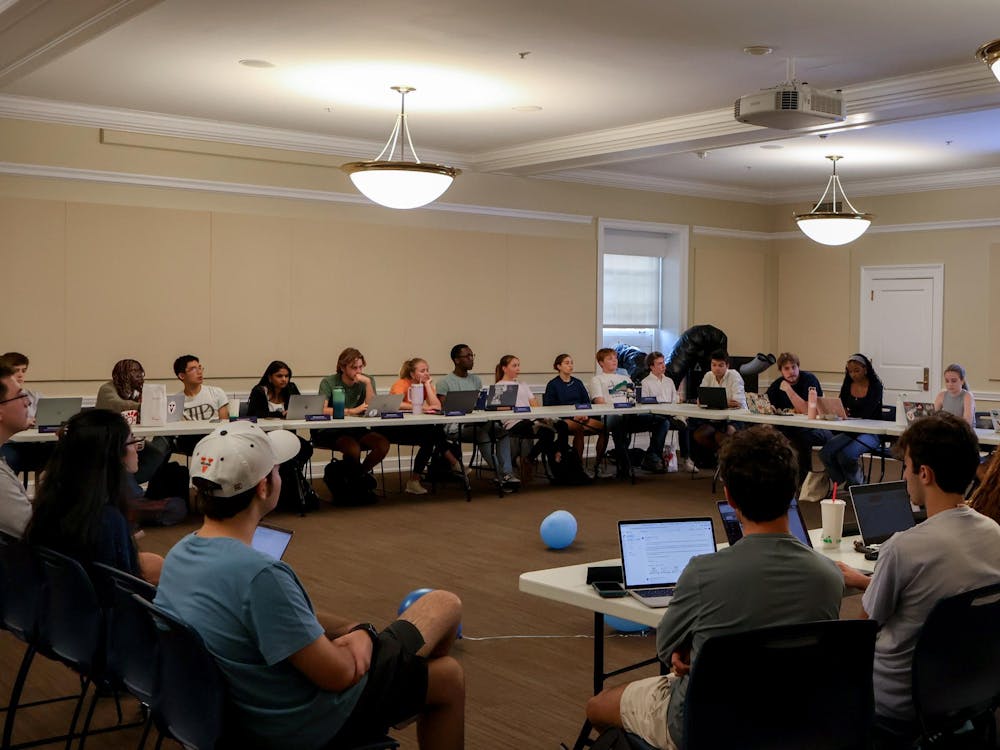The University Sexual Assault Board, along with the Parents Program and other student organizations held one of two presentations last night in the Newcomb Art Gallery as part of a three-week Consent Campaign.
"The campaign is aimed at raising the level of awareness in the University community about how often consent is not clear in intimate relationships and to educate individuals on how to be sure that it is present," Sexual Assault Board Chair Shamim Sisson said.
In order to publicize the campaign, a planning committee was formed to get out the word by distributing materials such as flyers, brochures and bookmarks, as well as getting interest from students.
Last night's presentation was given by Katrina Salmons, president of the Sexual Assault Facts and Education Organization, along with Sloane Kuney, coordinator of the Sexual Assault Leadership Council.
"The posters will give you the basic info about what consent is and how to ask for it, the presentations explore more fully the grey areas," Salmons said.
In the presentation, Salmons and Kuney further presented consent guidelines, answered student inquiries, and facilitated discussion among the audience.
They ended the presentation by encouraging those in attendance to continue to discuss and voice issues of consent and sexual assault with other members of the community.
"Silence is a huge enemy to anyone suffering any kind of violence, especially sexual," Kuney said.
The idea for the campaign began when Alan Berkowitz, an independent consultant and activist, met with the Sexual Assault Board. Berkowitz shared his published document, "Guidelines for Consent in Intimate Relationships," with the board and discussed it with them to supplement their basic training, Sisson said.
"The board got excited about the idea of educating students about what consent means, because even though we talk about it, it can mean different things to different people," said Claire Kaplan, University Sexual Assault Education Coordinator.
After Berkowitz met with the board, Sisson applied for a grant with the Parents Program to receive seed money for the campaign and Alexis Andres, a doctoral candidate in the Curry School, conducted focus groups to discuss Berkowitz's documents and get reactions from University students.
As a result, over the past summer, materials and guidelines were developed based on feedback and adaptations of Berkowitz's documents, Sisson said.The campaign laid forth four guidelines used to define consent. These guidelines can be found on materials distributed by the consent campaign planning committee and other collaborative organizations.
"A lot of different organizations are also involved and aided in terms of tabling, also First-Year Council helped us put brochures into every single first year mailbox, and residence staff gave us permission to put up laminated posters in every hall," said Karen Liu, chair of the campaign planning committee.
The second presentation will be made tonight at 7 p.m. in Webb Lounge, where more first-year students and RAs are expected, Salmons and Kuney said.
"We have confidence that the materials are such that the campaign can be as active as someone attending a program, or a suite sitting around just talking about a poster, or a fraternity kicking it around over dinner," Sisson said.






